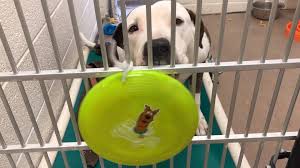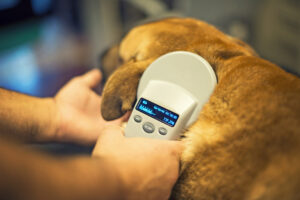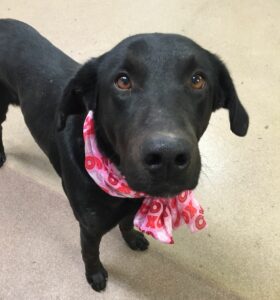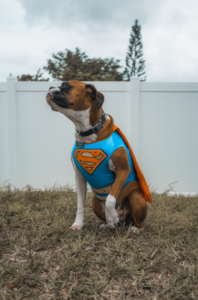Humane Pennsylvania 2019 Year in Review
by: Karel Minor, CEO Humane Pennsylvania
It’s time once again for Humane Pennsylvania’s year-end round up! This past year has been especially eventful and impactful, so buckle up, this will be a long one. 2019 was the first full calendar year in which we felt the impacts of the amazing $3.1 million Giorgi Family Foundation grant in support of our groundbreaking new approach to preventable animal suffering. The Healthy Pets Initiative (HPI) is a methodical and data based constellation of services aimed at helping the animals most at risk for relinquishment by providing specific, targeted services to them before they come to us with problems. One of the keys to this approach is to be able to deliver services at a high rate and number but in an extremely short period of time- essentially we will be providing ten years of service in just two years.
Beyond simply helping tens of thousands of animals in a very short period of time, we project we can decrease animal intake in our regional shelters from target service areas by 50% through HPI. Based on past trends a 50% decrease would take ten to fifteen years. We are shooting for doing it in just two. If it works, we will have identified a model that can be scaled and replicated. Although the bulk of services are being directed at the City of Reading, adjacent municipalities and targeted adjacent ZIP codes (19600 to 19612) due to the requirements of the grant, we are mirroring our services where ever possible in our Lancaster service area, as well. This means the benefits of this approach are being felt on the ground across Berks and Lancaster Counties, and beyond.
HPI is the focus of our work for the next couple of years and it is built on several key areas of growth, expansion and improvement in order to help ten times more animals. These include: capital/building/renovation projects, emergency services and response expansion, partnership expansion, expanded veterinary services, key staffing additions, and training and learning opportunities, both offered and received by our staff.
Capital Projects:
Humane Pennsylvania’s 1801 N. 11th St., Reading, animal shelter is under a near complete demolition, rebuild, and renovation process. This project will be finished in 2020 and will be the final component of the Giorgi Family Campus. This campus currently features our Schumo Center for Animal Wellness, our full service community veterinary hospital which is one of fewer than 25 AAHA accreted non-profit veterinary hospitals in the United States (and it’s here to serve your pet!). But the Giorgi Campus and HPI needs a new type of animal shelter that focuses on health and behavior. Our new Center for Animal Lifesaving will be that new shelter, featuring the best of animal housing merged with the best of shelter veterinary care and a high efficiency, high volume “walk-in/urgent care” veterinary service model to close the gap for those who have little or no resources but want to provide for their pets. The groundbreaking was Friday, December 13, at 10 AM!
This project will cost about $2 million and the Giorgi Family Foundation grant covered about 1/3 of the cost. We have been very fortunate to have several other donors make early gifts to bring our committed amount to over $1 million. This includes a generous $250,000 naming donation from a longtime friend of Humane Pennsylvania. We will still need to do final campaign asks of middle to low donors.
We also added to our fleet a box truck, trailer, pickup truck, passenger car, and mobile “tiny house” clinic were purchased. We were also fortunate to be on the receiving end of Savage 61’s generosity. They donated a Dodge ProMaster for use in our humane mission! Combined, these vehicles help us move food and supplies, set up our mobile clinic services, and do all the “stuff” we have to do and with the right vehicle for the job. We even got a fork lift (and our backs are very pleased about that.)
Emergency Service/Response:
We identified a building for program storage and emergency response use, which will be doubling as a wellness clinic and community resource center. It is the former Land Displays property, and they are a longtime supporter who worked with us to get a great deal and a temporary lease until our purchase this January so we could use the building immediately! Because of their creative and generous support, we were able to take the Giorgi Family Foundation support in the form of two years’ worth of warehouse lease funding and convert it to owned property.
Humane Pennsylvania representation has also returned to the Pennsylvania State Animal Response Team. Karel Minor (me!) rejoined the board of directors (I was prior board member and chair) to establish a more expansive program partnership using our newly acquired resources and programs to help statewide even more effectively.
Partnerships established:
We have also been rapidly expanding our partnerships to have an even bigger impact. Some of our new or expanded partnerships include:
- No Nonsense Neutering: Feral and community cat sterilization contractor relationship
- Animal Rescue League of Berks County: We have begun discussions for a sterilization and microchip subsidy which will allow us to share the Giorgi Family Foundation funds with ARL for work they do to support animals in the target service area
- PA State Animal Response Team: Board of Directors, response partnership expansion
- Brandywine Valley SPCA: Response & adoption partnership
- Berks County Center for Governmental Excellence at Albright College: Animal control and emergency response issues/program development
- VCA Animal Hospitals: Food pantry and clinic support partnership
- Municipal: City of Reading, Exeter, Muhlenberg, Fleetwood, Laureldale and more
- Service and technology development partnership with Dr. Michael Moyer (former director of shelter medicine at Penn Vet School, former Chair of American Animal Hospital Associations board, former Chair of PA Veterinary Association) to develop an “app” based service delivery options and a sustainable fundraising model
- Beginning a conversation with the Reading School District to investigate establishment of a veterinary science training or apprenticeship program to introduce students to a great career path
- PetSmart charities, HSUS, Rachel Ray Pet Food, Chewy.com and Helping Harvest Food have partnered with us to provide pet food and supplies to our Spike’s Pet Food Pantry programs
- BARTA has partnered with us for dog bed distributions in the county
- And this is just a partial list of our new and expanded partnerships this year!
Healthy Pets Initiative Services:
Our Healthy Pets Initiative is picking up steam rapidly with multiple community clinics being offered around our Berks/Reading targeted area. These clinics range from large ones with 75 to 100 animals served to smaller clinics that provide more expansive care to smaller numbers of animals in their own neighborhoods. We have also expanded to begin providing low and no cost vaccination and microchip clinics in our Lancaster service area (if you know a Daddy Warbucks who would like to underwrite vastly expanded services, call me maybe?). Since the first of the year (2019) we:
- Served 1,682 animals in 31 community clinics
- Together with our Healthy Pets Initiative service partner, No Nonsense Neutering, sterilized 3,500 feral and neighborhood cats
- Our community based animal hospitals, Humane Veterinary Hospitals Reading/Lancaster provided 20,599 client visits
- We implanted 4,092 free identification microchips
- In-house surgeries provided 2,197 sterilizations
Thanks to our new Community Resource Center warehousing facility and very generous corporate support who has donated 10,000 square feet of storage, we were able to obtain 10,000 new dog beds to share with the community and distribute over twenty tons of food and supplies in just the last three months as we expand Spike’s Pet Pantry services. These services, combined with the new Reading animal shelter and clinic facility will expand even more rapidly next year, providing a multiplying effect on the great work we can do.
Training/Learning Opportunities:
Humane Pennsylvania has built much of its success due to a commitment of two things: teaching and learning. We are always on the hunt for great new ideas and models we can build on or improve in our service areas. We also actively share our best ideas, improvements or skills through Animal Welfare Management Services, our training division. Thanks to both targeted grants for our staff to travel, grow and learn, and through fee for service programs offered to other organizations, we were able to learn and teach more than ever before- without having to divert funds from animal care needs.
Some notable opportunities for our staff to teach and learn included:
- Best Friends Boarding, toured and interviewed staff at a premier third party run, corporate built (Walt Disney World, Orlando) boarding facility that converts to disaster shelter at need.
- Animal Care EXPO, the major industry training conference: four senior staff attended, as well as presented on community outreach models for addressing cat issues based on Healthy Pets Initiative model in New Orleans.
- Access to Affordable Veterinary Care Symposium, University of Tennessee Veterinary School, Knoxville, TN: Invitational attendance to assist in developing service models as part of a nationally funded effort (Maddie’s Fund & Dr. Michael Blackwell, former Asst. Surgeon General)
- Damon March, one of a handful of HSUS accredited trainers nationally, is providing shelter medical training on behalf (and funded by) the Humane Society of the United States in Puerto Rico and reviewed disaster response and recovery efforts, results, and lessons learned.
- Damon March provided shelter medical training on behalf (and funded by) the Humane Society of St. Croix in St. Croix, USVI, and reviewing disaster response and recovery efforts, results, and lessons learned.
- Karel Minor toured several major community non-profit veterinary hospitals in CA (San Diego SPCA, Best Friends Mission Hills Animal Center, and San Francisco SPCA), as well as several animal control facilities, to learn from the longer established West Coast animal welfare models and to share Humane Pennsylvania’s innovative approach and programs.
Growing Staff:
Humane Pennsylvania has also been fortunate to add some great program staff to support all of this growth. We were very fortunate to steal Inga Fricke from the Humane Society of the United States, who brings her national level experience to her new role as Director of Community Initiatives. That will teach HSUS to send Damon off to a tropical island with their staff for a week. Inga then promptly recruited Suzanne D’Alonzo from her former employer. Suzanne and Inga have worked together in the past and they are building a whole new Healthy Pets Initiative team which is trying to not merely reduce preventable animal suffering but actually prevent it (gasp, what a concept!). Holly Giffin and Kylie Layman joined us to serve as our new Events & Social Media Coordinators in Berks and Lancaster, respectively. They are the reason our social and regular media presence has suddenly leapt forward and we have so many more things going on and being shared. Dr. Jessica Walters joined our Humane Veterinary Hospitals Reading staff, and Dr. Kristin Heffner joined us in support of the Healthy Pets Initiative.
Homeless Animal Lifesaving:
As Humane Pennsylvania’s mission focus has increasingly targeted prevention of owner surrender and animal strays by supporting pets in their homes and empowering people and municipalities to identify owners of roaming pets and return them swiftly and in the field, plus the changing views of our community about giving up pets, our shelter intake numbers continue to be historically low. Last year we took in 3,195 stray or owner surrendered animals. They included healthy, sick, injured, and ones with behavioral problems; cats, dogs, reptiles and rabbits, you name it, we got it. I am so happy to say that we were able to adopt or return to their owners 2,763 pets so far this year. That is a “raw”, unmodified 89% save rate. While our goal is obviously 100%, the reality is that we are now the “go to” shelter for animals with major illnesses, injuries, or behavioral issues so reaching 100% is increasingly hard. When you remove catastrophic illnesses or injuries and dangerous aggression cases, the save rate jumps even higher.
To put that in context, in 2004, the year I started, just our Berks County facility killed 33% more animals than what entered both our shelters combined this year- over 4,000 animals were euthanized, many for no other reason than we ran out of space. We have reduced that number to just 382 in Berks and Lancaster Counties combined. That is amazing progress and we are striving every single day to improve upon that success, because one animal is too many.
In conclusion:
I had to write “in conclusion” to stop myself from going on and on and on. We have done so much great stuff this year and are going to be doing even more in 2020. It is cliché’ but it is true: We couldn’t do it without you and everyone who supported us with time, money, items, resources, advice, and good will. Please keep it up and we promise we will keep up our hard work to build the best community anywhere to be an animal or an animal caretaker!
Your partner in animal welfare,
Karel Minor
CEO, Humane Pennsylvania











